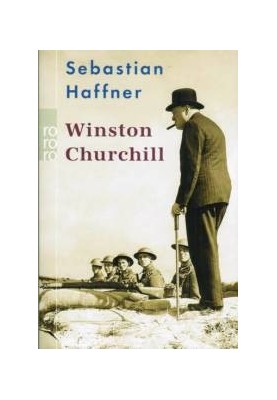Winston Churchill
 Instant download
Instant download
after payment (24/7)
 Wide range of formats
Wide range of formats
(for all gadgets)
 Full book
Full book
(including for Apple and Android)
It should be assumed that everyone knows who Winston Churchill was, or at least everyone imagines the image of this public figure and wartime legend. Sebastian Haffner is known much less, but his short and essentially complex biography of a character whose life spanned almost a hundred years has become a fascinating reading that sheds a lot of light on the little-known aspects of the recent history of the Western world. And which, without indulging interest in any "intimate details" - which is inherent in some modern biographies - also illuminates many contradictions and failures in Churchill's behavior and career, without detracting from his unique achievements. Haffner's biography of Winston Churchill is a masterpiece of conciseness and written with the acumen of a good journalist who has the advantage of an outside observer, however one who also knows a lot about the background of events. Among the surprises for the reader in this book is Churchill's transformation of loyalty to political parties. He began as a conservative, then became a radical liberal and a member of one of Lloyd George's governments before returning, after World War I, to a conservative party that had long hated him as a renegade. Churchill was very much a political dissident, often rash, rarely calculating, and genuinely oblivious to what others thought of him. Hating school and being a profane in almost every field except the history of England, he turned to the army for his career, and also discovered the joys of writing. He was first and foremost a warrior and conjunctivist, but without the slightest trace of benefit to himself. As well as a worthy writer. Another surprise in Haffner's narration is Churchill's complete foresight about Soviet Russia's intentions and his strategy to prevent them from becoming a reality after the war. as well as his complete failure to implement this strategy due to England's relative weakness in the face of America. and Russia. And his unequivocal desire to sell the British economy and empire in exchange for American aid and thus achieve victory in the war. It was the only way to resist Hitler, and he decided on it without a doubt. But mathematical and financial calculations were not Churchill's strong point. His stubbornness and determination to prove his point led him to some decisions that were difficult for many people. Just ask the Australians or New Zealanders he sent to his death in Gallipoli during World War I, or the Poles he left during the next World War. Haffner also explicitly hints at the variable nature of Churchill's sentiments.. He might have been diagnosed as bipolar these days, as he oscillated between intense very vigorous upswings and periods that Churchill himself described as the "black dog" that had taken over him. A lot has been written about Churchill, a lot of books. This book holds a special and worthy place among them. This book is highly recommended to anyone who has any interest in the personality of Churchill, or the world of British politics of the first half of the 20th century.
LF/443942849/R
Data sheet
- Name of the Author
- Себастьян Хаффнер
- Language
- Russian
- Release date
- 2002










